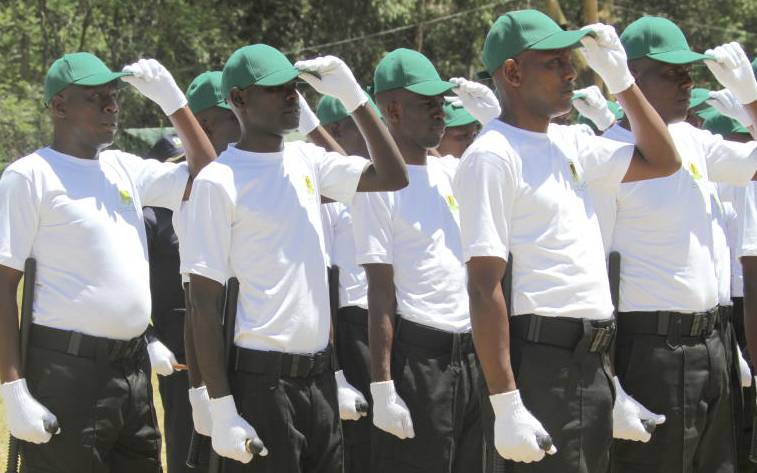×
The Standard e-Paper
Home To Bold Columnists

Private security personnels at Private Security Training Academy in Karen, Nairobi, on Thursday, January 24 2019, during a meeting organised for directors of private security companies to discuss matters gun ownership by private security guards in the country. [David Njaaga,Standard]
Private security officers will now have to undergo standardised training and tests in law, public relations, report writing and counter-terrorism as part of efforts to enhance their role in national security.